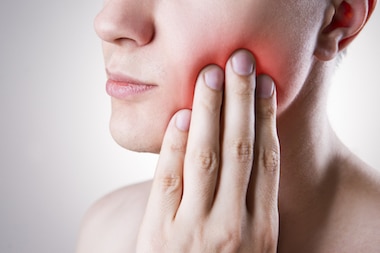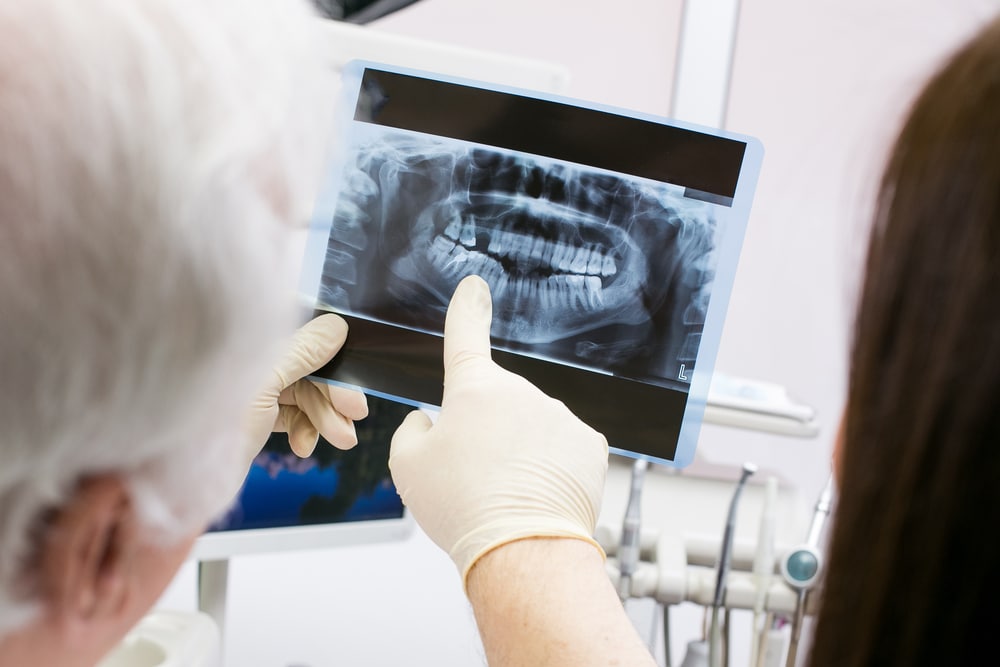
If you notice soreness or stiffness in your jaw when you chew or talk, or if you notice a popping or clicking sound, you may be suffering from temporomandibular joint dysfunction or TMJ. In this blog post, we’ll break down what TMJ is, what it feels like, what causes it, and what you can do about it.
What is Temporomandibular Joint Dysfunction (TMJ)?
Temporomandibular joint dysfunction, commonly referred to as TMJ, is a condition that affects the joints connecting your jaw to your skull. These joints, located just in front of your ears, are essential for everyday activities like talking, chewing, and yawning. When the joints become inflamed or misaligned, it can cause a range of uncomfortable symptoms that interfere with daily life.
This condition affects the ability of the jaw to move smoothly, often leading to pain, discomfort, or limited movement. The TMJs are among the most complex joints in the body, and issues with these joints can arise from several different sources, ranging from injury to chronic conditions like arthritis.
BDG’s Now Dentures and Dental Implants specializes in treating TMJ dysfunction
Make an appointment with an experienced professional today >
What Does TMJ Feel Like?
TMJ dysfunction can present a variety of symptoms, depending on the severity of the condition. Some of the most common signs include:
- Jaw pain or tenderness on one or both sides of the face.
- Difficulty opening or closing the mouth fully.
- Popping, clicking, or grinding sounds when moving the jaw.
- Headaches, earaches, or neck pain radiating from the jaw area.
- Swelling or inflammation around the jaw joints.
- Locking of the jaw, where the jaw becomes stuck open or closed for a moment.
These symptoms may come and go or persist, and they can become worse during periods of stress or heavy jaw use. For example, consuming foods that are difficult to chew or a long day of giving speeches or talking can worsen symptoms of TMJ. However, this can be difficult to predict. For some people, TMJ can be a chronic issue, while others experience temporary discomfort.
Causes of TMJ
As previously mentioned, the root cause of TMJ is irritation, inflammation, or misalignment of the muscles that connect the lower jaw to the skull. But how does this happen? TMJ dysfunction can be caused by a wide range of factors. Some common causes include:
- Jaw injury: Any trauma or injury to the jaw, head, or neck can affect the alignment and function of the temporomandibular joints. This could be the result of a sport injury, vehicle crash, a fight, or another incident or accident.
- Teeth grinding (bruxism): People who grind or clench their teeth, especially during sleep, put excess pressure on the jaw joints, leading to inflammation and pain over time.
- Arthritis: Just like other joints in the body, the TMJ can be affected by osteoarthritis or rheumatoid arthritis, causing wear and tear or inflammation.
- Poor bite alignment: If the teeth or jaw are misaligned, the TMJs may have to compensate by working harder, leading to pain or dysfunction. This might simply be a condition you were born with or the result of how your teeth aligned as a child.
- Stress: Stress can cause people to clench their jaws or tighten their facial muscles, putting additional strain on the TMJs.
- Connective tissue disorders: Certain conditions that affect connective tissues, such as Ehlers-Danlos syndrome, may also lead to TMJ issues.
In many cases, more than one factor may contribute to TMJ problems, making it important to get a proper diagnosis to determine the root cause. Working with a dentist or another dental professional who has experience with TMJ disorders can help you get to the root of the problem faster, and find the best solution.
What to Do About TMJ
Managing TMJ dysfunction depends on the severity of the symptoms and the underlying causes. There are several ways to treat and relieve TMJ pain, ranging from at-home care to professional treatment options. Here are some of the most effective solutions:
1. Home Remedies and Lifestyle Changes
If you notice your TMJ symptoms coming and going and they generally aren’t severe, a few at-home remedies can help. Start with simple changes to reduce strain on your joints:
- Eat soft foods to reduce the pressure on your jaw.
- Avoid chewing gum or eating hard, chewy, or crunchy foods.
- Practice jaw relaxation techniques, such as gentle stretching or massaging the muscles around the jaw.
- Apply heat or cold packs to the jaw to relieve pain or swelling.
- Manage stress through relaxation exercises, yoga, or meditation to reduce clenching or teeth grinding.
2. Medications
Certain over-the-counter and prescription medications can help alleviate TMJ pain. Once again, this is recommended for TMJ symptoms that come and go. If these symptoms are persistent and don’t go away, it’s a good idea to talk with your dentist about a long-term solution.
- Nonsteroidal anti-inflammatory drugs (NSAIDs): Pain relievers like ibuprofen can reduce inflammation and relieve pain.
- Muscle relaxants: In cases where muscle tension is contributing to TMJ, muscle relaxants may help reduce jaw tightness.
- Anti-anxiety medications: If stress is the primary cause of teeth grinding or jaw clenching, anti-anxiety medications can help manage these behaviors.
3. Dental Appliances
Many people find relief from TMJ pain by using dental devices that help protect the jaw and realign the bite. This can be especially helpful if you’re suffering from nighttime teeth grinding, also called bruxism.
- Nightguards or splints: Custom-made appliances worn over the teeth at night can help prevent teeth grinding and reduce stress on the TMJs.
- Bite adjustment: If a misaligned bite is causing TMJ dysfunction, your dentist may recommend adjusting your bite or reshaping the teeth.
4. Physical Therapy
Physical therapy can help improve the function of the jaw joints through exercises and techniques that reduce pain and increase mobility:
- Jaw exercises that gently stretch and strengthen the muscles around the jaw.
- Manual therapy to mobilize the jaw joints and improve alignment.
- Postural exercises to help reduce tension in the neck and shoulders, which can affect the jaw.
5. Medical and Surgical Options
For severe TMJ cases that don’t respond to other treatments, more intensive interventions may be needed.
- Corticosteroid injections: Injecting steroids directly into the joint can reduce inflammation and provide long-lasting relief.
- Arthrocentesis: A minimally invasive procedure where fluid is injected into the TMJ to flush out debris or inflammation.
- Surgery: Surgical options such as joint repair or replacement can be helpful for extreme cases, but this is usually a last resort when other treatments have failed.
Temporomandibular Joint Dysfunction (TMJ) Therapy and Treatment in Las Vegas
If you’re living or working in the Las Vegas area and you’re suffering from symptoms of TMJ, experienced and compassionate dental professionals can help. At BDG’s Now Dentures and Dental Implants, our professionals frequently diagnose and treat TMJ dysfunction. We’ve helped hundreds of patients get relief from the TMJ pain and restore comfortable chewing, talking, and daily activities. Our experts are experienced in diagnosing and treating TMJ dysfunction, and we can help find the cause and resolve it.
Schedule a consultation at Now Dentures and Implants today!
Temporomandibular joint dysfunction can be a frustrating and painful condition, but there are many effective ways to manage the symptoms. Whether your TMJ is caused by teeth grinding, arthritis, or another issue, working with a dentist or medical professional can help you find the right treatment plan. Contact us today to make an appointment with a dentist near you.



